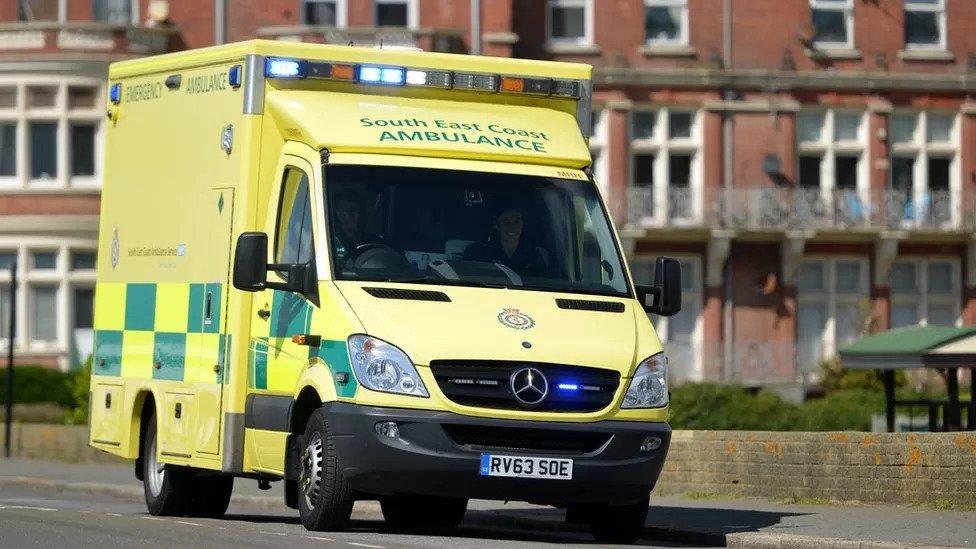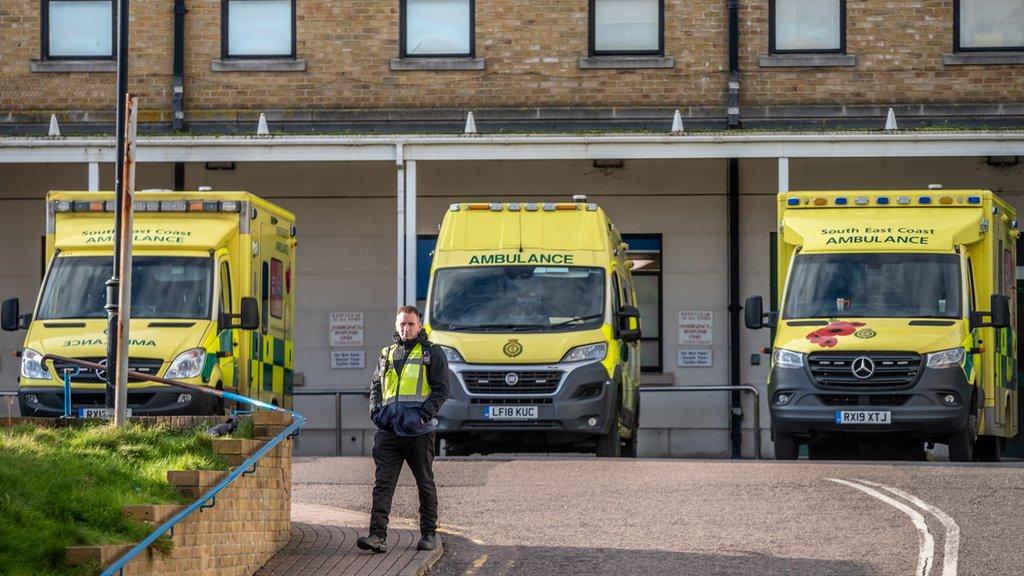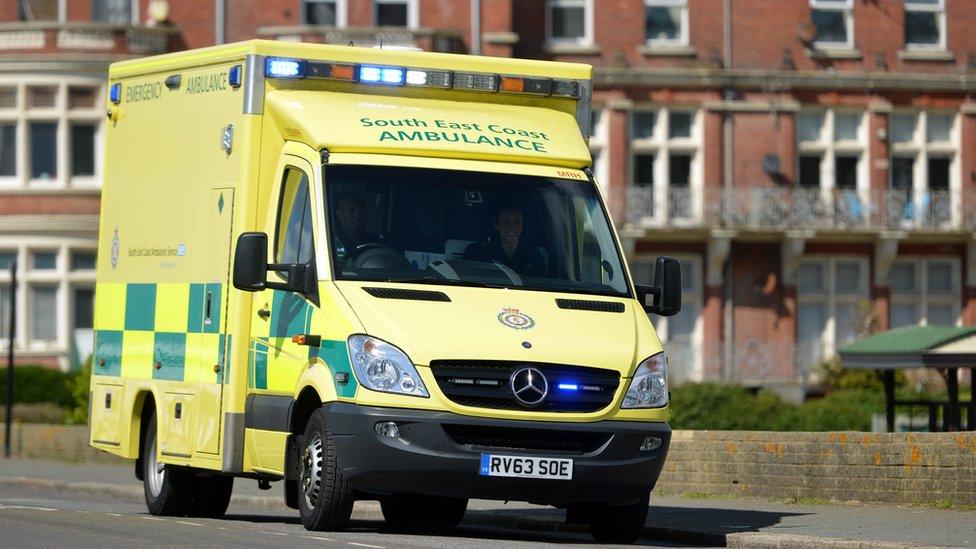Secamb invests in support for staff exposed to traumatic events
- Published

South East Coast Ambulance Service NHS Foundation Trust is investing £40,000 per year into its Trauma Risk Management programme
An ambulance service trust is investing in a support programme to help staff who have been exposed to traumatic events.
South East Coast Ambulance Service NHS Foundation Trust (Secamb) is investing £40,000 per year into its Trauma Risk Management programme (TRiM).
The investment will cover an initial two years.
Secamb is responsible for covering East Sussex, West Sussex, Kent, Surrey, and North East Hampshire.
The TRiM programme, introduced across Secamb in 2016, uses structured peer-to-peer conversations with trained practitioners to help identify those who display signs of acute stress and supports their recovery following an incident.
'Upsetting experiences'
Historically, Secamb has asked colleagues to train and provide TRiM on a voluntary basis. But the trusts says the investment will enable it to develop a sustainable, long-term approach.
Secamb TRiM lead Natalie Cole said: "While it is fantastic colleagues have been willing to volunteer for this role to support their peers, it wasn't a sustainable approach.
"Working in the ambulance service is an extremely rewarding career but can, of course, also expose staff and volunteers to some very challenging and upsetting experiences.
"We are fortunate that so many colleagues have stepped up to be trained to provide this support and it is great news that the trust is committed to ensuring this success is built upon and developed."
To date, more than 1,100 people working for Secamb have been helped through the programme, with a 125-strong team volunteering to help their colleagues.

Follow BBC South East on Facebook, external, on Twitter, external, and on Instagram, external. Send your story ideas to southeasttoday@bbc.co.uk, external.
- Published22 February 2011
- Published22 September 2022

- Published26 October 2022
